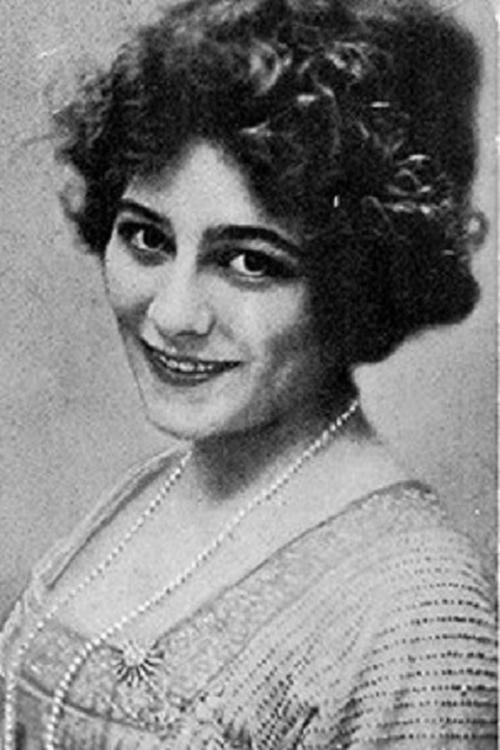
|
Put Yourself in His Place (1912)
Character: Jael Dence
The story concerns the love of Henry Little for Grace Carden and its reciprocal sentiment, with the time-honored interference of those who attempt to arrange the affairs of Cupid to suit social exigencies.
|
|

|
The Forest Rose (1912)
Character: N/A
Forester and Maywood, two wealthy neighbor planters, volunteered their services to defend their country when the war of the Revolution broke out. Forester was made colonel of his regiment, while Maywood became a captain. The men mortgaged their plantations and gave the benefits to the government, which was hard pressed for funds. Colonel Forester was mortally wounded at the battle of Cowpens, but before he passed away, Captain Maywood promised that he would care for Forester's motherless little girl.
|
|

|
When Dreams Come True (1913)
Character: The Maid
The young owners of a California orange grove loved each other, but they were unhappy because their lives were so narrow and circumscribed. Each dreamed of wealth and prayed continually that it might come. Sometimes dreams come true and in this particular case they did. Wealth came to the couple and they were in a position to gratify their every fancy.
|
|

|
Love and Law (1915)
Character: The Rich Widow
Jimmy and the Deacon are rivals for the rich widow's hand, and the Deacon with his little Flivver has so far won out.
|
|

|
Riders of the Range (1923)
Character: Mary Smithson
A growing number of cattle raids prompts the cattlemen to call on their cattlemen's association president Martin Lethbridge to investigate. Sheep Ranchers are suspected, who led by Gregg Randall blame the cattlemen for increased casualties among the sheep herds. Letherbridge falls in love with Randall's daughter, Dolly, and eventually exposes Blunt Vanier as the cause of the conflict.
|
|

|
The Idol of the Hour (1913)
Character: The Artist's Wife
The young artist had searched Paris for a suitable model to pose as a shepherdess in a new picture which he hoped would win him fame. But none of the models pleased him, and at last, feeling that he could not do justice to the picture, he decided to postpone his work and take a walking trip through France.
|
|

|
His Brother's Keeper (1921)
Character: Mrs. Weer
Rex Radcliffe, vice president of the Northern Atlantic Railroad, is opposed by company president William Harding in his desire to put over a deal that would jeopardize the stockholders of the Interstate Railroad. Using thought control, he causes Weer, Harding's discharged secretary, to murder his ex-boss. Weer is arrested for the murder. Radcliffe then puts Harding's daughter, Helen, also under his influence. John Bonham, Interstate president, becomes interested in the case, and with the aid of Mrs. Weer he exposes Radcliffe, who then commits suicide.
|
|

|
A Militant Suffragette (1912)
Character: President of the Suffragette's Club
The course of true love was running very smoothly until the girl became interested in the cause of votes for women. Her fiancé did not approve of it. There was a quarrel, and the engagement ring was haughtily returned. The young woman not only stubbornly refused to make up, but decided to become a really truly militant suffragette.
|
|

|
The Silent Voice (1915)
Character: Mildred Hallan
Franklyn Starr, a talented and wealthy young musician, suffers a double misfortune in the sudden loss of his hearing and in the death of his Mother to whom he is deeply attached. He loses his generous, joyous nature and transforms into a gloomy and despondent misanthrope.
|
|

|
The Red Raiders (1927)
Character: Jane Logan
Lone wolf, who is stirring up the Indians against the wishes of his elders, gets the job of scout at the fort. When he hears of the approval of the new reservation, he sends his men to trap Scott and his troop before they can deliver the information.
|
|







